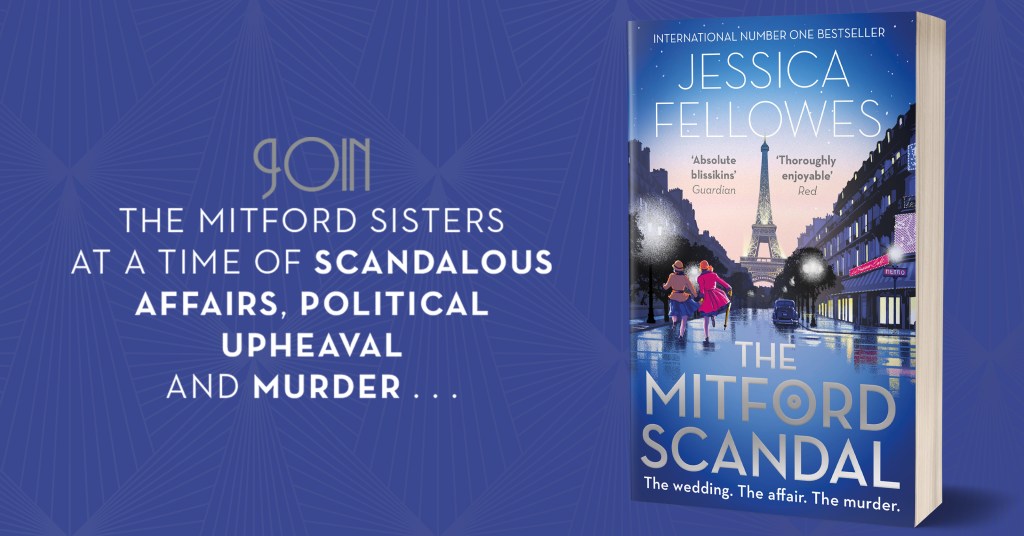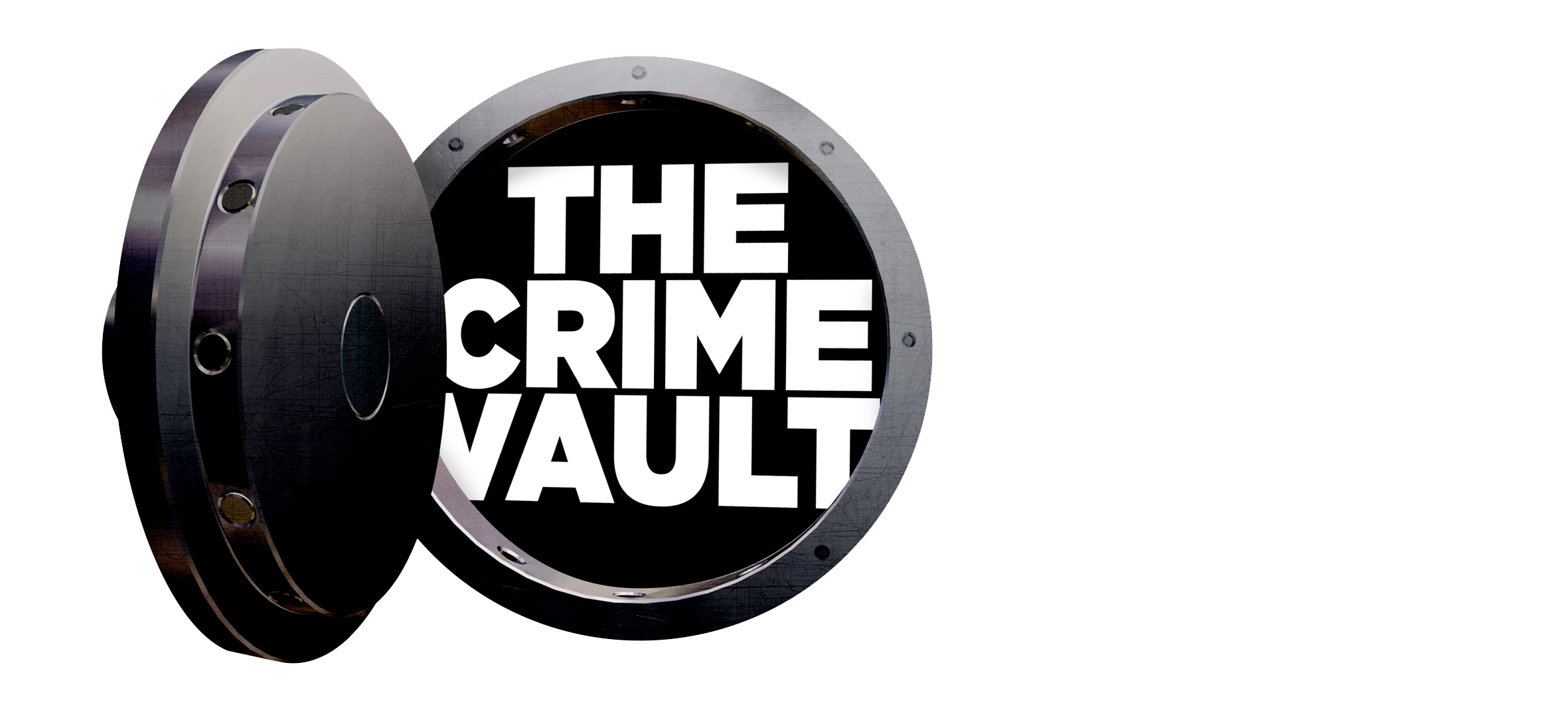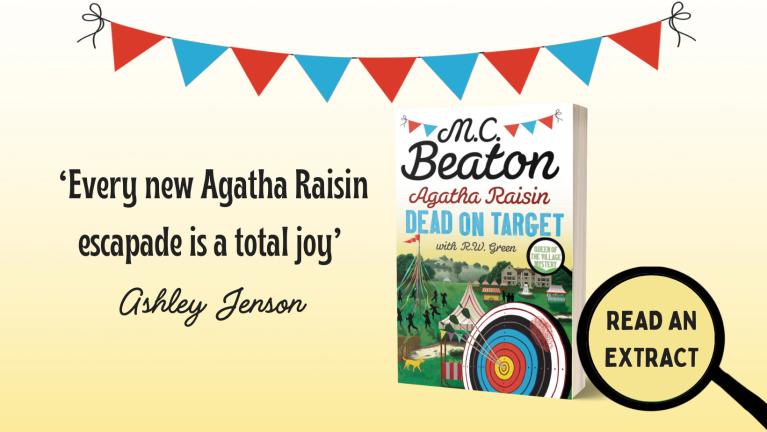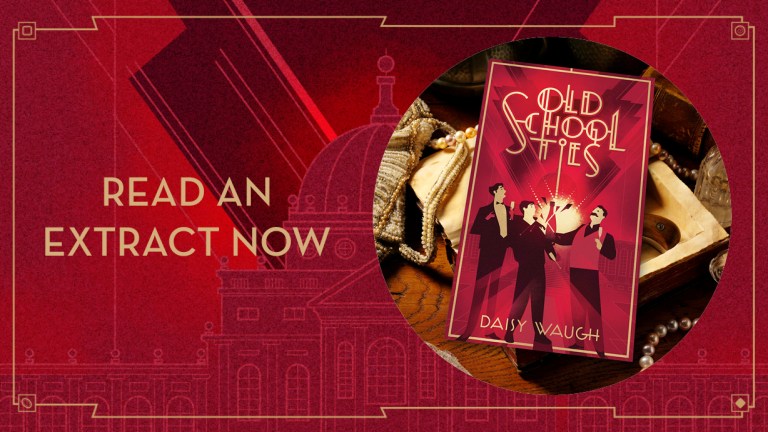Read an extract from The Mitford Scandal by Jessica Fellowes

Ahead of the publication of The Mitford Trial, the fourth book in the thrilling Mitford Murders series by bestselling author Jessica Fellowes, we’ll be sharing extracts from the first three books in this brilliant series. Read on for an extract from the third, The Mitford Scandal.
1928
Chapter One
Tuesday night at the Guinness’s dance at the height of the London season began in an entirely predictable manner. No one was to know it would end with a dead body.
Louisa Cannon was working as a maid in the kitchens of Grosvenor Place, a temporary state of affairs, as she frequently reminded herself. She knew there was honour in her labour but, truthfully, she had wanted to leave her career as a servant behind. Still, needs must and rent had to be paid. After a long winter, the blossom in Hyde Park had come out in full bloom and soon afterwards so had the debutantes, ready to twirl their way through the season as decoratively as any well- tended perennials. Their husband- hunting was of no interest to Louisa, but the accompanying social whirl created extra work for a few months, which suited her perfectly.
On this particular June evening, the hostess, Lady Evelyn, had decorated her house in a medieval style, with posies of summer wildflowers thrust into pewter pots and dotted throughout, instead of the tall stems of roses commonly seen in the dining rooms of Mayfair. Smoke- blackened beams had been nailed to the ceilings and the rooms were lit with low- watt yellow bulbs in sham dripping candles, while the fireplaces smouldered and smoked rather than blazed. The resulting glow threw a flattering light on even the most decrepit dowager’s décolletage. Louisa had been sent up the stairs and through the green baize door to retrieve a footman whom the housekeeper had spotted mistakenly taking up a tray of devils- on- horseback too early; they were intended for the ‘breakfast’, which would be served at one o’clock in the morning. It was now a few minutes to midnight, and Louisa was trying, as unobtrusively as possible, to find the elusive footman. There were several large rooms around the central hall, each of which were crammed with people in the half- light. She was walking through the library when she saw someone that made her freeze: Nancy Mitford.
Nancy was standing with her younger sister, Diana. It had been a few years since Louisa had last seen them, and while Nancy was almost unchanged, Diana was not. Her beauty, which as a young girl had been lightly sketched on her face, had developed into an oil painting, with masterful strokes of pale pink and cream. They were talking to a man rather intently and didn’t notice their former nursery maid hiding behind a pillar. Perhaps she should have said hello but they looked so magnificent and confident, Louisa didn’t want them to see her in a maid’s uniform. So far as they knew, she had gone to London to live as an independent, successful and modern woman. She knew her letters to Nancy had done little to betray this vision.
‘If you were a biscuit,’ Nancy said to the man, ‘you would be a ginger nut.’
‘How so?’
‘You seem wholesome but every bite snaps and you have a fiery aftertaste.’
He smiled and took a sip of his gin cocktail. ‘I can live with that. You would be a chocolate éclair. Every mouthful of you is delicious but terribly messy.’
‘I’m not sure whether to be shocked or delighted.’
‘The perfect response.’
Diana struck a pose, her long neck twisted, her back arched.
‘What am I, Mr Meyer?’
Louisa watched him regard her before he spoke slowly. ‘A Florentine. Beautiful, but brittle.’
Diana straightened out and stepped back. ‘I’m not at all sure that I—’
‘Sshh. Look. There’s Bryan Guinness.’ Nancy jerked her chin in the direction of a slight young man on the other side of the room, talking in an exaggerated fashion to a woman who was holding an ear trumpet.
Diana reached out to a passing footman and nabbed a champagne coupe. ‘What of it?’
‘Don’t be obtuse, you’ve been dancing with him all summer. It’s quite clear what your feelings are.’ Nancy took the glass from Diana’s hand. ‘And no more of this. You’re only seventeen, two glasses are quite enough.’
Diana bared her teeth in mock anger but gave it up easily enough. ‘I’m eighteen in three days and he’s a superb dancer, that’s why he’s on my card so often, but fine. I’ll go and say hello.’ She wandered off. Louisa retreated further into the shadows. She really should try to slip away but she felt a compulsion to listen.
Nancy scoffed at Diana’s retreating figure then stopped abruptly.
‘Are you pouting?’ Mr Meyer asked, a shocked expression on his face, though Louisa suspected he might be exaggerating for effect.
‘Don’t. It’s shaming enough having a younger sister who has all of London gawking at her beauty without her getting married off to a man as rich as Croesus before I’ve so much as had a sniff of a proposal. Besides, Muv would never allow it.’
‘Why ever not?’
‘Too much money. It’s ruinous.’
‘Well, I know how I—’
‘Yes, yes, we know. Grapes and chaise-longues. You’re so provincial.’
There was an awkward pause before he tried another conversational tack. ‘Isn’t this a repulsive party? What are you going to say about it?’
‘I don’t know. It’s all the usual gang. Oh, look, there’s Evelyn Waugh.’ Her face had brightened. ‘A promising novelist. Only, I’ve written that before. The Mulloneys are supposed to be here, they might be good for a story.’
‘Who are they?’
‘Kate and Shaun Mulloney, very good-looking, very amusing.’
She gave a sigh. ‘Only, there’s nothing more to say about them already. We’ve got weeks left of this yet.’ Her mouth returned to its sulky droop.
Mr Meyer was of a good height and his slim figure and well- cut clothes might have picked him out for attention, but his face, though attractive when looked at directly, had evenly spaced, unmemorable features. Louisa wondered if she’d seen him before or if he just had a face that made one think that. She watched as he scanned the room and ran off the roll of names. ‘Princess Mary, Lady Lascelles, the Duke and Duchess of Abercorn, the Duchess of Devonshire – beautifully dressed tonight, as I suppose she should be as she is—’
Nancy chimed in and they said together: ‘The Mistress of the Robes to Queen Mary.’
He sniggered. ‘Why the richest woman in England must have a job bemuses me. The Duchess of Portland, the Duchess of Rutland . . . ’ He trailed off.
‘It isn’t a job. It’s the most senior role for a woman in the Royal Household.’ Louisa recognized Nancy’s father in these comments. For all the rows they’d had, they were as one when it came to protocol.
‘Thank you, ma’am,’ said Mr Meyer, doffing an imaginary cap. ‘If I were the richest woman in England I’d be on my proverbial chaise- longue having grapes fed into my mouth one by one by an obliging young Adonis in a toga, not sucking up to the royally dried- out prune.’
Nancy didn’t respond to this. She had heard it before.
‘I suppose I had better telephone some of this through,’ she said instead. ‘My editor will be champing. I don’t know that either of us are going to stick this. And I’m going to go and talk to Bryan. See if I can’t put a spanner in the works.’
She wandered off, presumably to find a telephone and call the society magazine that she had told Louisa had obligingly taken her on for a few diary pieces, though she had not yet earned enough money, she had admitted, to merit the tiresomeness of friends who mimed buttoning their lips every time she came near.
Abandoned, Mr Meyer stuck his hands in both his pockets and wandered through to the ballroom and Louisa, having spotted the errant footman at last, did not follow.
*
Below the ballroom floor, the servants’ quarters were no less a hive of orchestrated movements. The workers could hear a faint echo of the jazz beats above but there was no time to stand and listen. A stream of footmen, many brought in specially for the evening, went up and came back down the stairs with silver salvers with which to hand around or collect glasses. In the kitchen, the assistant cook and the maids had prepared and cleared up the dinner that the family and a few friends had before the dance began but the night was not yet over for them. Now there was the breakfast to prepare. Trays of bacon lay ready for crisping in the lower ovens of the range and a maid stood by a huge mixing bowl into which she had been tasked with cracking a hundred and fifty eggs. On the high wooden table that dominated the room there sat slabs of butter which needed to be shaved off and rolled into pats, and loaves of bread to be sliced and toasted. A vat of saffron- yellow kedgeree was already warming, someone stirring it continuously to stop the rice from sticking to the bottom. The room was hot from the ovens and the steam, and there was a constant cacophony of clattering saucepans as the scullery maid washed up, with orders shouted over the top of it all.
With all this stage- managed chaos going on it perhaps wasn’t surprising that only Louisa heard someone knocking at the back door. She looked around and as she could see neither the housekeeper nor the cook, she went to open it herself. A man stood there, his hands stuck in his coat pockets, a pork pie hat firmly jammed on his head, despite it being a warm night. He looked in need of a bath and he stared at her intently. Louisa wondered if she had sixpence to send him away with but he wasn’t asking for bread or money. ‘I’m a friend of Ronan’s,’ he mumbled.
Louisa was confused. ‘Sorry?’
That seemed to throw him, too. ‘Aincha Rose?’
Louisa was trying to think who Rose might be – she didn’t know the names of everyone working there that night – when a girl pushed past her, flustered. ‘Thanks, Miss,’ she said, ‘this is for me.’ When Louisa didn’t move, momentarily unsure what was happening, the girl looked at the man and said firmly, ‘I’m Rose,’ then repeated to Louisa, ‘Thank you.’ She was younger than Louisa, afraid to dismiss her but clearly wanting her to go away.
‘Of course,’ said Louisa and walked off but she turned around just in time to see the man hand a small package to Rose, which she quickly put in her apron pocket.
Shortly after this, two young maids were walking through the kitchen, their thin arms each carrying an overloaded tray of dirty glasses, when they were spotted by Mrs Norris, the housekeeper. She called out to them and they stood to attention. Dark circles bloomed deep below their eyes – Louisa knew they had to have been up since half past five that morning, working to ready the house for the party. Mrs Norris sighed at the sight of them. ‘You had better get going to bed, girls. We’ll need you up early in the morning to put everything straight.’
‘Thank you, Mrs Norris,’ they chirruped as they put the trays down by the sink. Before leaving the kitchen, the housekeeper gave a nod to Louisa, a companionable greeting that accorded her a small measure of respect. Louisa looked around at the people working, each one busy at their task, and gave a little inward smile. Yes, the money was needed but so, too, was the company.
Louisa caught sight of the two young maids winking at their fellow worker cracking the eggs, as one of them stole a few devils- on- horseback off the tray. It earned them a shout from the assistant cook – ‘Oi, them’s for young Mr Guinness!’ – before they raced off up the back stairs. She lost sight of them then, and felt a pang as they ran, giggling together. It had been a while since she’d enjoyed such easy friendship.
*
Despite their sore feet, the sound of the music and chatter as they moved through the back stairs of the house enlivened the two girls. At one point, they glimpsed the ladies in fine dresses with beads that shimmered as their bodies dipped and swayed. Dot nudged Elizabeth in the side. ‘Imagine having a dress like that,’ she whispered, her eyes on a gold and silver fringed number. Elizabeth grinned and stifled a giggle.
On the fourth floor, they found their friend, Nora, a scullery maid, also on her way to bed. The three of them stood together for a moment, their ears cocked as the music faintly reached them. Elizabeth began to regale them with their tale of the dancing. ‘I think we saw the Prince of Wales,’ she said at the end.
‘You never,’ said Nora, punching her in the arm, though her wide eyes betrayed a question. They might have, mightn’t they? Their master and mistress were richer than they knew was possible and all kinds of toffs came through the front door that was polished daily.
‘We can look at them,’ said Elizabeth suddenly. She inclined her head toward the large skylight, set inside a square of railings on their landing. ‘There’s a little hole there, in the middle, look.’
The other girls leaned over the railing. ‘We can’t see from here,’ said Nora, her bottom lip pushing out. She was tired and quite hungry, and on top of that she felt frustrated to have missed the show. As if she’d gone to the Regal Cinema in Marble Arch and been forced to stand outside the door and listen to everyone roaring with laughter at the moving pictures.
Dot was eighteen years old, older than the other maids, and inclined to feel that she was responsible for them. Some were as young as fourteen when they began work in the house and they missed their older sisters when they arrived – the ones who had usually brought them up, while the mothers were busy with the babies – and Dot liked to be the one who showed them both affection and discipline, to help them grow up quicker. She opened the gate.
Nora put her hand over her mouth and cried out, ‘What are you doing?’
‘It’s fine,’ said Dot. ‘I’ll hold on to the railing. We can just lean out a bit further and look through the hole. Don’t you want to see the Prince of Wales?’
‘He ain’t there,’ said Nora. She looked on the verge of tears.
‘Supposing Mrs Norris comes up here.’
‘She won’t come up,’ said Elizabeth. ‘She’s still working.’
Dot went through the gate, her hands holding on to the railing behind her, her feet on tiptoes at the edges. Heat had risen through her suddenly and sweat had broken out on her forehead, which she wiped with her arm. Beneath the sheen, her skin was paler than the ivory ribbon threaded through her cap. Elizabeth, screwed- up courage written on her face, went through the gate as well. Nora kept hoping one of them would cry off so she could too. Something made her turn to the side and she saw another maid coming up the stairs, one she didn’t recognize as living in the house. She hoped she wouldn’t tell on them.
Dot bent her knees and twisted her body slightly, one hand holding on to the railing behind her, the other pressing on the skylight. The shadows moved beneath the opaque glass, the lights blurred like fireflies in the night. She let out a small gasp as her hand on the railing slipped momentarily, but she said no more and held on, as resolute as she was when blacking a grate.
Elizabeth was beside her now, bent too, and with one hand about to lean upon the glass. The music reverberated in their ears as they leaned further forward, and there was a tantalising view of the men and women below, smoking and laughing louder than the hyenas in London Zoo.
*
At half past midnight, the message went out round the kitchen that breakfast was soon to be served and Louisa was sent back upstairs again by the assistant cook to let the footmen know they would be needed for the synchronised delivery of kedgeree and scrambled eggs.
In the central hall, into which the stairs from the servants’ quarters emerged, a steady stream of people entered and exited, either coming from or moving on to another party in London. A night during the Season was like Snakes and Ladders, sliding from Knightsbridge to Mayfair and then back again on a roll of the dice. Standing by the stairs, Louisa was surprised to see the maid from earlier, Rose, talk briefly to someone she recognized: Clara Fischer, one of Nancy’s friends from years before. She was a pretty actress in the Clara Bow mould and one of the few of the inner circle that had talked to Louisa and not barked orders at her. Idling for the moment, Louisa watched as Rose disappeared back into the crowd before Clara handed her drink for a man to hold while she rifled through her evening bag; he had slicked back hair and sapphire- blue eyes that looked about him and never at Clara. Louisa decided now would not be the moment to say hello to Miss Fischer; she was American and would have forgiven a maid greeting her at a party but the man might not. As she stirred herself to find more footmen, Nancy approached the pair and Louisa heard her call out ‘Shaun, darling’, which made him almost drop the glasses he held in each hand. He must be the glamorous man Nancy had been talking about earlier.
Still not wishing to be seen by her former charge, Louisa left them to go from there and through the ballroom, tapping a footman or two, then on to a small hall where the women would sit out the next dance if their cards hadn’t been filled. It was brighter here than the rest of the house thanks to its high cream walls and a ceiling with a large skylight set with opaque glass so that one couldn’t see the floors above. A chandelier hung from the middle of it on a long chain, its glass drops seemingly suspended in the air.
Somehow, above the chatter and the music, Louisa was sure she heard a creak from above, followed sharply by a cry. She was puzzled to see shadows moving across the glass. There was more than one and they were too big to be the house’s pet cats, surely. Were those people on the glass? It couldn’t be nearly strong enough to hold anyone. Louisa looked frantically about her, not knowing what she was hoping to see – something to catch them? Should she shout? But she didn’t want to cause a scene, it might be someone fixing something and it could be terribly embarrassing if—
Without realising, Louisa had been moving as she was looking up, and she felt someone grip her arm. It was Mr Meyer, though of course he did not know her name. ‘Watch out,’ he said. He looked up, following her eyeline, and gave a gasp. ‘What’s up there?’
‘I don’t know,’ she said, her pulse racing.
Before either of them could warn the others there was a crash, then a fast- moving, horrible sound as shards scattered everywhere, hands flew to faces and men threw their arms around the bare shoulders of the women, before the most sickening and terrible sound of all – a body hitting the floor.
There lay a young maid, absolutely dead.
Up above them another girl clung to the chandelier, blood pouring down her china- white face, her eyes squeezed tightly shut, her mouth a silent black hole.
'A lively, well-written, entertaining whodunit' THE TIMES
Lose yourself in the sumptuous first novel in a new series of Golden Age mysteries set amid the lives of the glamorous Mitford sisters.
It's 1919, and Louisa Cannon dreams of escaping her life of poverty in London, and most of all her oppressive and dangerous uncle.
Louisa's salvation is a position within the Mitford household at Asthall Manor, in the Oxfordshire countryside. There she will become nurserymaid, chaperone and confidante to the Mitford sisters, especially sixteen-year-old Nancy - an acerbic, bright young woman in love with stories.
But when a nurse - Florence Nightingale Shore, goddaughter of her famous namesake - is killed on a train in broad daylight, Nancy and amateur sleuth Louisa find that in postwar England, everyone has something to hide . . .
Written by Jessica Fellowes, author of the number one-bestselling Downton Abbey books, The Mitford Murders is the perfect new obsession for fans of Daisy Goodwin, Anthony Horowitz and Agatha Christie - and is based on a real unsolved crime.
'An extraordinary meld of fact and fiction' GRAHAM NORTON
'True and glorious indulgence. A dazzling example of a Golden Age mystery'
DAISY GOODWIN
'Exactly the sort of book you might enjoy with the fire blazing, the snow falling. The solution is neat and the writing always enjoyable'
ANTHONY HOROWITZ
'Oh how delicious! This terrific start to what promises to be a must-read series is exactly what we all need in these gloomy times. Inventive, glittering, clever, ingenious. I devoured The Mitford Murders... so will you. Give it to absolutely everyone for Christmas, then pre-order the next one'
SUSAN HILL
'All the blissful escapism of a Sunday-night period drama in a book'
THE POOL
'Keeps the reader guessing to the very end. An accomplished crime debut and huge fun to read'
EVENING STANDARD
'This story is drenched in detail and feels both authentic and fun. Curl up in your favourite reading spot and enjoy'
HEAT
'The plan is that each book will focus on a different Mitford sister. On the strength of this initial entry, success is assured'
FINANCIAL TIMES
'Elegant, whipsmart and brilliantly twisty-turny, this Downton-style mystery had me hooked from the first page'
VIV GROSKOP
'Full of period pleasure'
WOMAN & HOME
'An audacious and glorious foray into the Golden Age of mystery fiction. Breathtaking'
ALEX GRAY
'A real murder, a real family and a brand new crime fiction heroine are woven together to make a fascinating, and highly enjoyable, read. I loved it'
JULIAN FELLOWES
'Jessica Fellowes' deliciously immersive, effortlessly easy novel has a strong feel for period and a rollicking plot'
METRO
'What a captivating crime novel and heroine Jessica has created in The Mitford Murders. The instant reassurance of being in the hands of a true storyteller with a feel for period detail makes this a real treat'
AMANDA CRAIG
'This is a chocolate soufflé of a novel: as the enthralling mystery heats up, so the addictive deliciousness of the story rises. The sort of book you never want to end'
JULIET NICOLSON
***PLEASE NOTE: The Mitford Affair was previously published as Bright Young Dead***
'Absolute blissikins. Set in 1925, The Mitford Affair is a delightful mashup of real and fictional characters'
GUARDIAN
As the glamour of the Bright Young Things crashes into the world of the Mitford sisters, their maid Louisa Cannon finds herself at the scene of a gripping murder mystery.
Meet the Bright Young Things, the rabble-rousing hedonists of the 1920s whose treasure hunts were a media obsession. One such game takes place at the 18th birthday party of Pamela Mitford, but ends in tragedy as cruel, charismatic Adrian Curtis is pushed to his death from the church neighbouring the Mitford home.
The police quickly identify the killer as a maid, Dulcie. But Louisa Cannon, chaperone to the Mitford girls and a former criminal herself, believes Dulcie to be innocent, and sets out to clear the girl's name . . . all while the real killer may only be steps away.
PRAISE FOR THE MITFORD MURDERS SERIES
'An extraordinary meld of fact and fiction' GRAHAM NORTON
'A lively, entertaining, well-written whodunit' THE TIMES (crime book of the month)
'True and glorious indulgence. A dazzling example of a Golden Age mystery'
DAISY GOODWIN
'Exactly the sort of book you might enjoy with the fire blazing, the snow falling. The solution is neat and the writing always enjoyable'
ANTHONY HOROWITZ (crime novels of the year)
'Oh how delicious! This terrific start to what promises to be a must-read series is exactly what we all need in these gloomy times. Inventive, glittering, clever, ingenious. I devoured The Mitford Murders... so will you. Give it to absolutely everyone for Christmas, then pre-order the next one'
SUSAN HILL
'All the blissful escapism of a Sunday-night period drama in a book'
THE POOL
'Keeps the reader guessing to the very end. An accomplished crime debut and huge fun to read'
EVENING STANDARD
'This story is drenched in detail and feels both authentic and fun. Curl up in your favourite reading spot and enjoy'
HEAT
'The plan is that each book will focus on a different Mitford sister. On the strength of this initial entry, success is assured'
FINANCIAL TIMES
'Elegant, whipsmart and brilliantly twisty-turny, this Downton-style mystery had me hooked from the first page'
VIV GROSKOP
'Full of period pleasure'
WOMAN & HOME
'An audacious and glorious foray into the Golden Age of mystery fiction. Breathtaking'
ALEX GRAY
'A real murder, a real family and a brand new crime fiction heroine are woven together to make a fascinating, and highly enjoyable, read. I loved it'
JULIAN FELLOWES
'Jessica Fellowes' deliciously immersive, effortlessly easy novel has a strong feel for period and a rollicking plot'
METRO
'What a captivating crime novel and heroine Jessica has created in The Mitford Murders. The instant reassurance of being in the hands of a true storyteller with a feel for period detail makes this a real treat'
AMANDA CRAIG
'This is a chocolate soufflé of a novel: as the enthralling mystery heats up, so the addictive deliciousness of the story rises. The sort of book you never want to end'
JULIET NICOLSON
'A glittering, entertaining, perfectly formed whodunnit' ADELE PARKS
The newly married and most beautiful of the Mitford sisters, Diana, hot-steps around Europe with her husband and fortune heir Bryan Guinness, accompanied by maid Louisa Cannon, as well as some of the most famous and glamorous luminaries of the era. But murder soon follows, and with it, a darkness grows in Diana's heart . . .
This wonderful new book in the bestselling The Mitford Murders series sees the Mitford sisters at a time of scandalous affairs, political upheaval and murder.
PRAISE FOR THE MITFORD MURDERS SERIES
'A lively, entertaining, well-written whodunit' THE TIMES (crime book of the month)
'Exactly the sort of book you might enjoy with the fire blazing, the snow falling. The solution is neat and the writing always enjoyable' ANTHONY HOROWITZ (crime novels of the year)
'Absolute blissikins' THE GUARDIAN
'A must-read series . . . exactly what we all need in these gloomy times. Inventive, glittering, clever, ingenious' SUSAN HILL
'All the blissful escapism of a Sunday-night period drama in a book' THE POOL
'An extraordinary meld of fact and fiction' GRAHAM NORTON
'True and glorious indulgence. A dazzling example of a Golden Age mystery' DAISY GOODWIN
'Keeps the reader guessing to the very end. An accomplished crime debut and huge fun to read' EVENING STANDARD
'This story is drenched in detail and feels both authentic and fun. Curl up in your favourite reading spot and enjoy' HEAT
'Elegant, whipsmart and brilliantly twisty-turny, this Downton-style mystery had me hooked from the first page' VIV GROSKOP
'Full of period pleasure' WOMAN & HOME
'An audacious and glorious foray into the Golden Age of mystery fiction. Breathtaking' ALEX GRAY
'A real murder, a real family and a brand new crime fiction heroine are woven together to make a fascinating, and highly enjoyable, read. I loved it' JULIAN FELLOWES
'Jessica Fellowes' deliciously immersive, effortlessly easy novel has a strong feel for period and a rollicking plot' METRO
'What a captivating crime novel. The instant reassurance of being in the hands of a true storyteller with a feel for period detail makes this a real treat' AMANDA CRAIG
'This is a chocolate soufflé of a novel: as the enthralling mystery heats up, so the addictive deliciousness of the story rises. The sort of book you never want to end' JULIET NICOLSON
A timeless whodunnit with the fascinating Mitford sisters at its heart, The Mitford Trial is inspired by a real-life murder in a story full of intrigue, affairs and betrayal.
It's former lady's maid Louisa Cannon's wedding day, but the fantasy is shattered shortly after when she is approached by a secretive man asking her to spy on Diana Mitford - who is having an affair with the infamous Oswald Mosley - and her similarly fascist sister Unity.
Thus as summer 1933 dawns, Louisa finds herself accompanying the Mitfords on a glitzy cruise, full of the starriest members of Society. But the waters run red when a man is found attacked, with suspects everywhere.
Back in London, the case is taken by lawyer Tom Mitford, and Louisa finds herself caught between worlds: of a love lost to blood, a family divided, and a country caught in conflict.
PRAISE FOR THE MITFORD MURDERS SERIES
'A glittering, entertaining, perfectly formed whodunnit'
Adele Parks
'Oh how delicious! Exactly what we all need in these gloomy times. Give it to absolutely everyone for Christmas, then pre-order the next one'
Susan Hill
'A lively, well-written, entertaining whodunit'
The Times
'An extraordinary meld of fact and fiction'
Graham Norton










